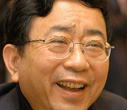Money
China's pension fund to grow to 1t yuan in a year
(Agencies)
Updated: 2009-10-28 17:37
China's national pension fund is preparing to boost private equity investments as the fund is expected to grow to 1 trillion yuan ($146.5 billion) in a year, up from $80 billion at the end of last year, Chairman Dai Xianglong said on Wednesday.
Dai, head of China's National Social Security Fund (NSSF) and a former Chinese central bank governor, also said that the global currency system dominated by the dollar would gradually shift to one comprising of the dollar, euro and Asian currencies such as the yuan in the aftermath of the financial crisis. "Big changes are taking place, but they don't happen overnight," Dai told a financial conference in Shanghai. "Reforming the irrational international financial system is necessary, but it's a gradual, long-term process."
Dai said that China, Russia, India and other export-reliant economies hoped to see a stable dollar, but expressed concern over the currency's fate.
"The problem is not whether the US government is willing or not to keep the dollar stable, but whether it has the ability to do so," Dai said.
"We should shift our focus to the domestic market, and support economic and financial restructuring," he said.
As part of efforts to boost direct financing and reduce the economy's reliance on bank lending, NSSF planned to grant more mandates to private equity investment managers and it has received eight applications this year.
The fund can invest a maximum of 10 percent of its assets in private equity, meaning it can use up to 100 billion yuan in such investments in a year, Dai said.













